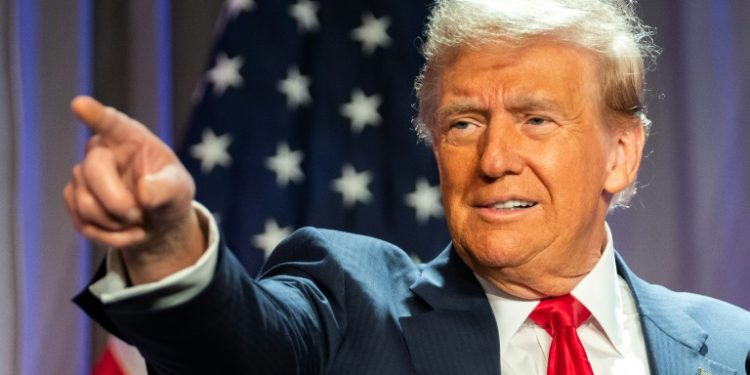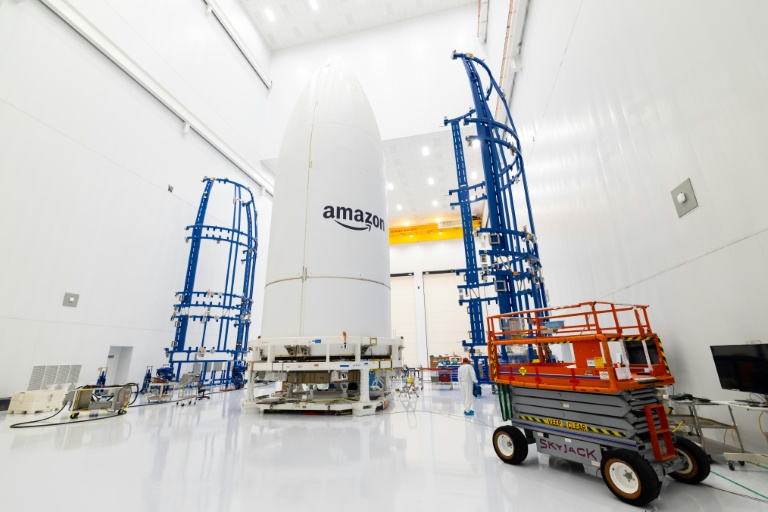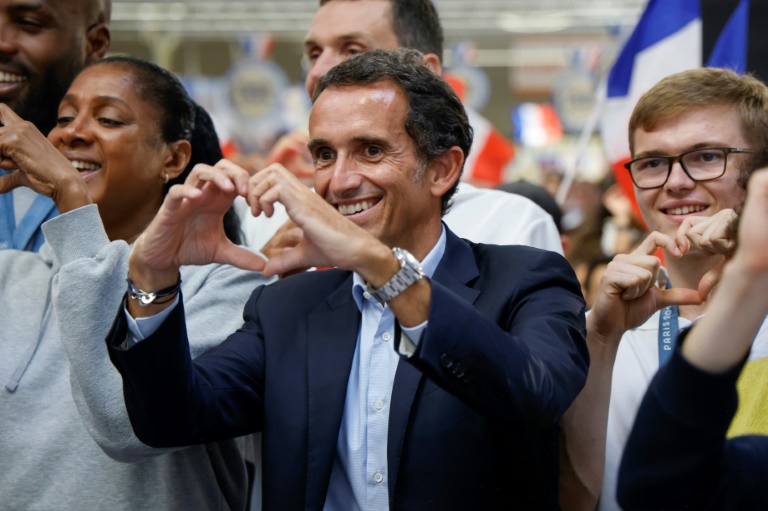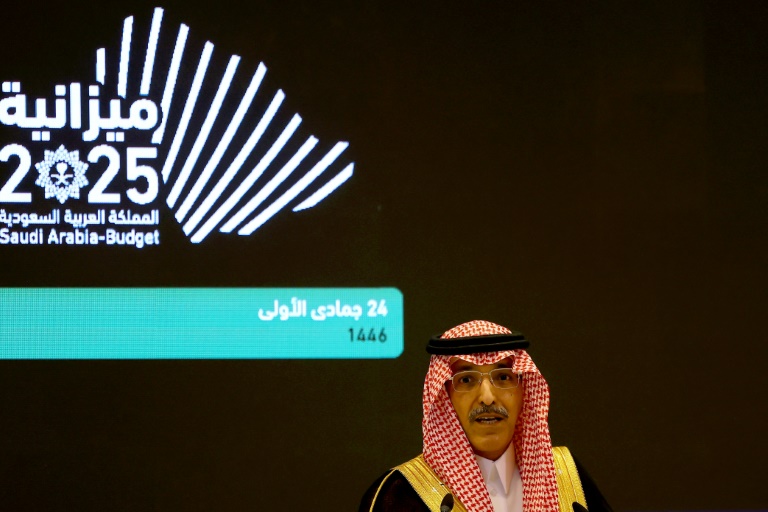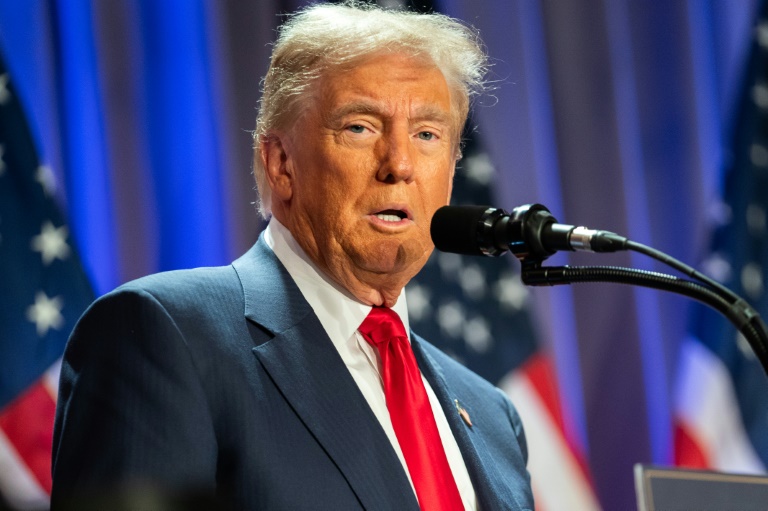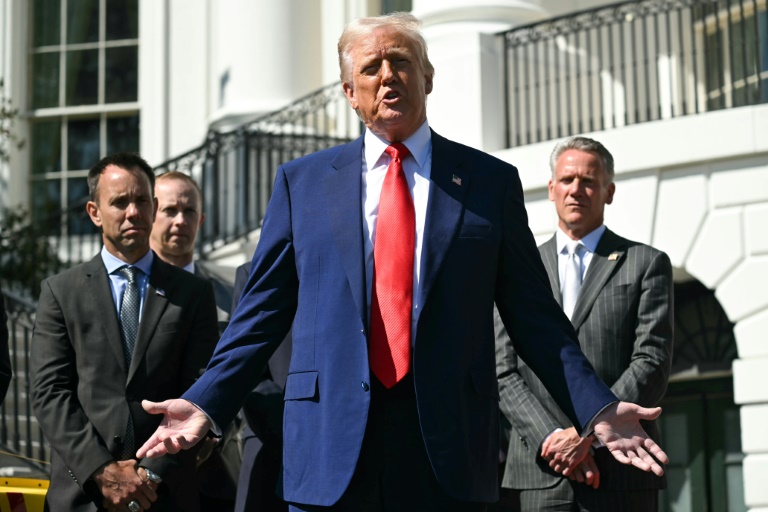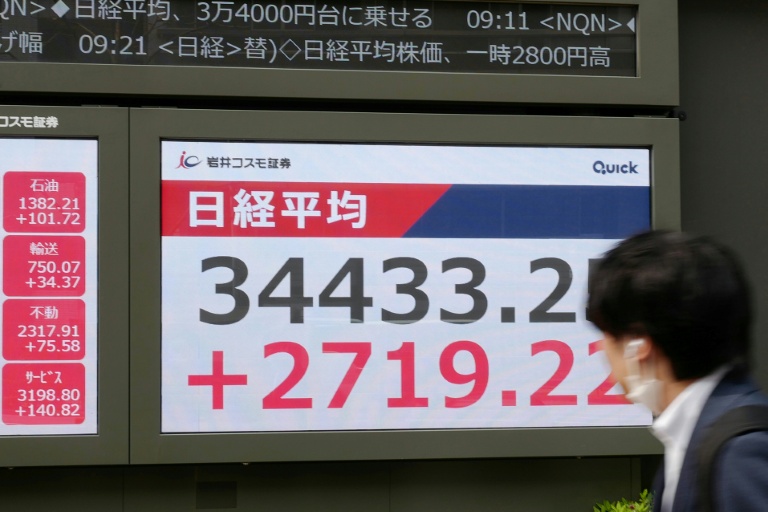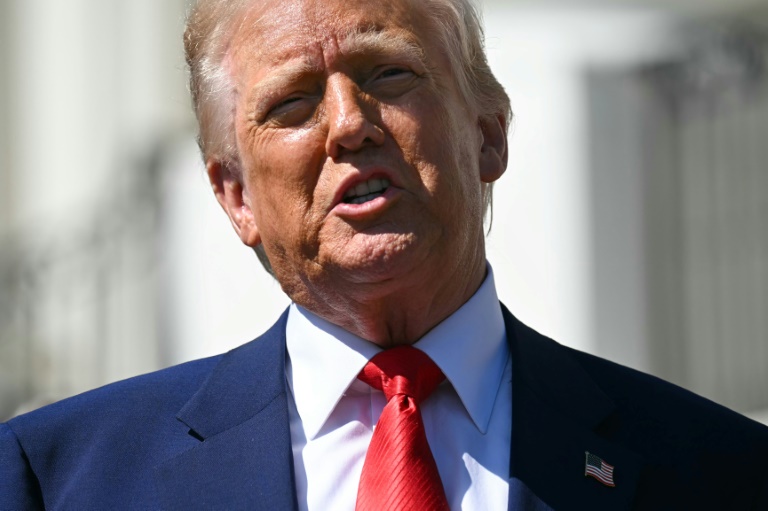Washington (AFP) – China and Mexico lashed out Tuesday after Donald Trump threatened to begin his presidency with an immediate trade war against the top three US economic partners. Trump made his threat in social media posts, announcing huge import tariffs against neighbors Canada and Mexico and also rival China if they don’t stop illegal immigration and drug smuggling into the United States.
China responded that “no one will win a trade war,” while Mexican President Claudia Sheinbaum warned that “for every tariff, there will be a response in kind.” A Canadian government source said Prime Minister Justin Trudeau called Trump and had a “productive” discussion, without giving further detail. Such tariffs threaten to disrupt the global economy, deepen already fierce tensions with China, and upend relations with the United States’ two huge neighbors. Nervous stock markets saw “volatile trading conditions” as they digested the news, said Fawad Razaqzada, analyst at City Index.
On his Truth Social platform, Trump said late Monday that he would enact the tariffs the moment he takes office on January 20 if his — vaguely worded — demands were not met. The posts signal Trump’s intention to return to the governing style of his first presidency, when he regularly shocked Washington and US partners with abrupt, major policy shifts which he announced on social media. They also confirmed that Trump is serious about his major campaign promise to use US economic muscle as leverage on issues having little to do with trade — namely his claim that the United States is under siege by foreign crime and dangerous migrants.
On Tuesday, Trump named two important figures to his economic team: Jamieson Greer as his trade representative and Kevin Hassett as his top economic advisor, heading the White House National Economic Council. Both had roles in his first administration, with Greer serving as chief of staff to former US Trade Representative Robert Lighthizer. “I will sign all necessary documents to charge Mexico and Canada a 25 percent tariff on ALL products coming into the United States,” Trump earlier posted. “This Tariff will remain in effect until such time as Drugs, in particular Fentanyl, and all Illegal Aliens stop this Invasion of our Country!” he said.
In another post, Trump said he would be slapping China with a 10 percent tariff, “above any additional Tariffs,” because the world’s second biggest economy was failing to execute fentanyl smugglers. Liu Pengyu, spokesman for China’s embassy in the United States, told AFP that “China believes that China-US economic and trade cooperation is mutually beneficial in nature.” Mexico’s Sheinbaum fired back at Trump, saying his tariffs diplomacy was “not acceptable” and based on erroneous claims. “It is not with threats or tariffs that the migration phenomenon will be stopped, nor the consumption of drugs in the United States,” she said. Sheinbaum pointed out that the Mexican narcotics industry largely exists to serve demand in the United States.
“Seventy percent of the illegal weapons seized from criminals in Mexico come from your country,” she said. “Tragically, it is in our country that lives are lost to the violence resulting from meeting the drug demand in yours.”
William Reinsch, senior adviser at the Center for Strategic and International Studies, said Trump’s online threats may be bluster — a strategy of “threaten, and then negotiate.” However, Trump’s first White House term was marked by an aggressive and protectionist trade agenda that also targeted China, Mexico, and Canada, alongside Europe. While in office, Trump launched an all-out trade war with China, imposing significant tariffs on hundreds of billions of dollars of Chinese goods. China responded with retaliatory tariffs on American products, particularly affecting US farmers.
Economists say tariffs can hurt US growth and fuel inflation, since they are paid by importers bringing the goods into the United States, who often pass those costs on to consumers. Trump has said he will put his commerce secretary designate Howard Lutnick, a China hawk, in charge of trade policy.
© 2024 AFP

